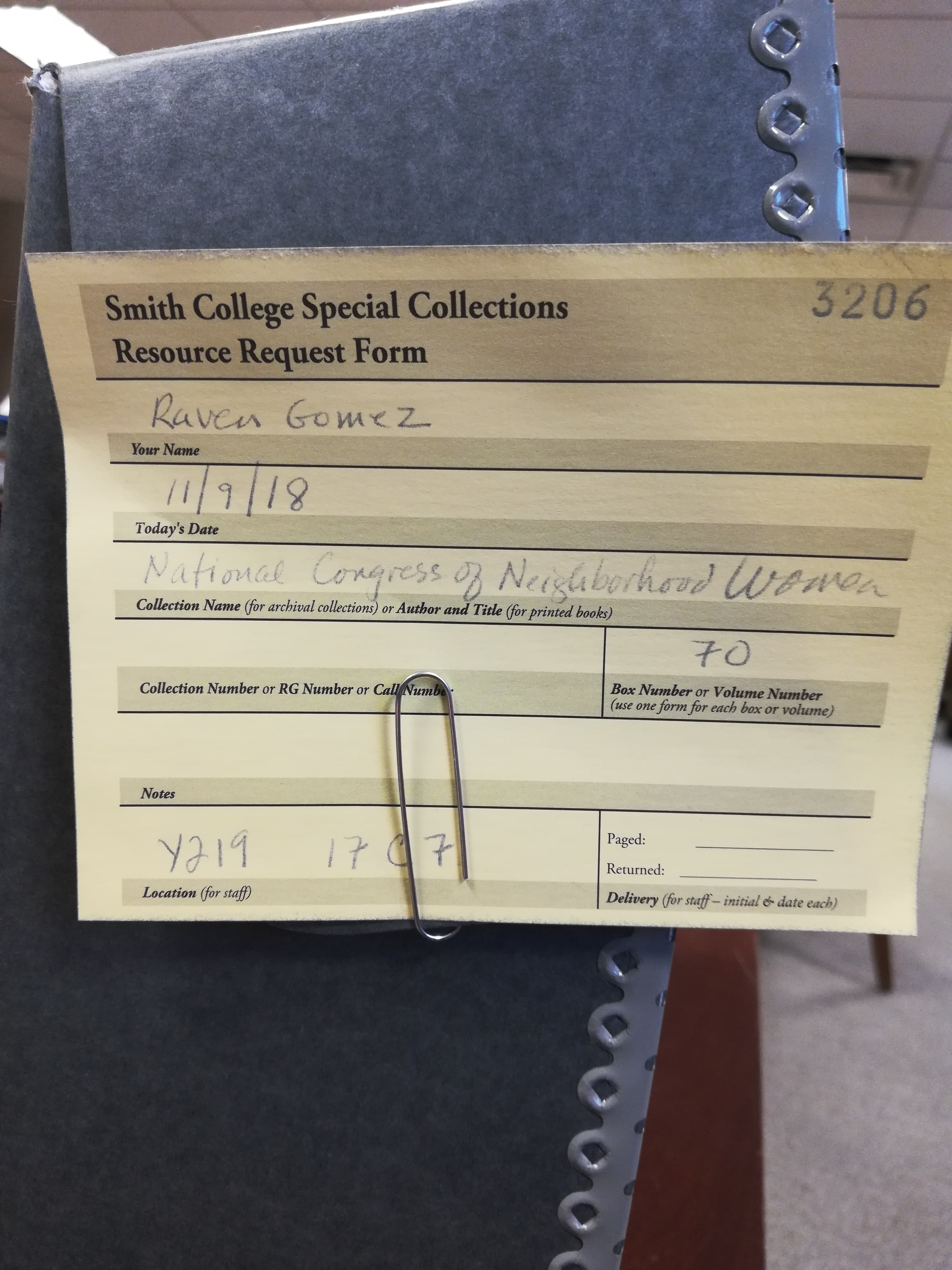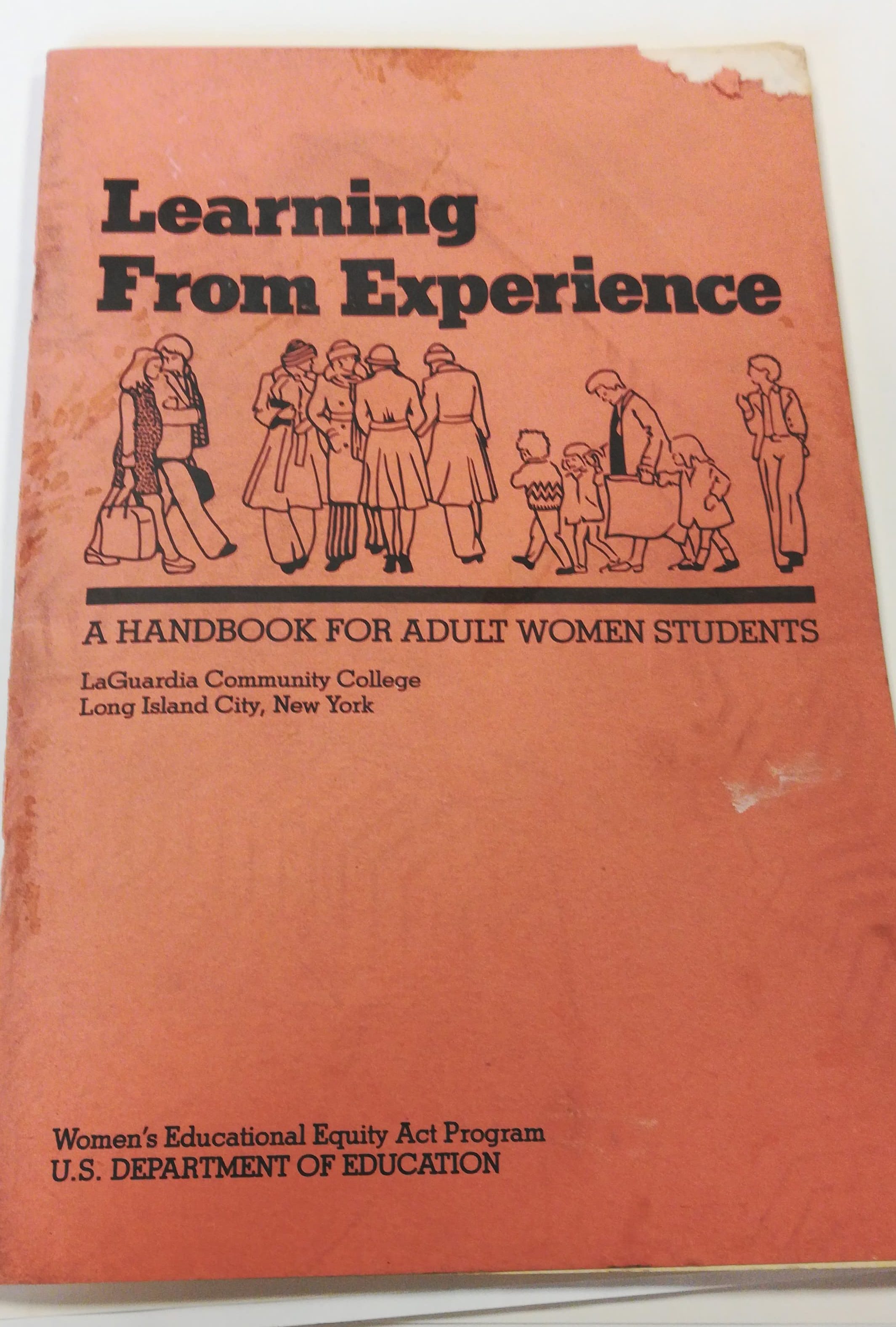 Apologies for the late blog post! I just returned from a weekend at my undergraduate institution, Smith College for an archives project deeply related to this week’s theme of DH and Archive studies.
Apologies for the late blog post! I just returned from a weekend at my undergraduate institution, Smith College for an archives project deeply related to this week’s theme of DH and Archive studies.
As mentioned in Stephen Brier’s “Radical Teacher”, the history of the CUNY Digital History Archive, and the significance of “..stor(ies) that can and should be told and must be linked to the broader history of public higher education in the contemporary era..” became the guiding framework as I delved into my current research archival project.
In 2015 during my time as an undergrad, I participated in a 1 credit course in the Sophia Smith Archives, which not only exposed me a skill-set of navigating archives, but exposed me to a serendipitous collection which would spark my interest for the years to come. The collection involves The National Congress of Neighborhood Women (Archive directory in link) in collaboration with the City University of New York (aka CUNY), specifically Hunter & LaGuardia Community College’s involvement with an experimental/nontraditional off-campus curriculum for women of lower-economic neighborhoods from 1971-1979. I’m still perplexed as to why such a large collection of CUNY related materials would be at Smith College, an all women’s liberal arts college in rural MA, and as a current “DH’er” & graduate student, I wanted to return to this collection and see if it would be possible (and what the process would be like) to transition these materials to the CDHA with the support of Stephen Brier and the Wagner Archives at LaGuardia Community College.
The bureaucratic process involved in attempting to digitize this collection for an open-access platform has not been the easiest process, which deeply echoes the tone of Dr. Stephen Roberts article, “The Differences between Digital History and Digital Humanities”. Particularly, I’m interested his exploration of DH as a field of study, and limiting accessibility into considering archival projects as a pedagogical tool to decipher history in the learning process. Considering the usage of digital tools to preserve this archival collection has been met with several restrictions due to the collection’s content including written testimonies from NY state senators and congresswomen, and other confidential materials from the time which can limit accessibility & inclusion in considering students from the CUNY community. Ideally this would be a project that should not only be made public, but could be drawn as a resource for CUNY students at LaGuardia community college that could be incorporated into a course, or project for a broader understanding of the history of community college’s in relation to the student’s direct and individual experience. These broader notions of how history, politics, and education policy intersect deeply inform how we as graduate students, in limited positions of power could engage in the dismantling of accessibility of historical documents in higher education.

Going through these resources, which includes handwritten testimonies from the women of this program was particularly cathartic for me, and my personal experience graduating from LaGuardia Community College in circa 2014. It felt as though a part of my history, which involved the now radical concept of allowing women (mostly women of color from neglected parts of Brooklyn) to remain in their neighborhoods to pursue an associates degrees “off-campus”, engaged in developing an empowered sense of community and pedagogy in practice had been forgotten when I noticed the collection had not previously been accessed since 1991. How can Digital Humanities radicalize the process in which archival material can be accessible to ensure history can be persevered an utilized to communities that need it? And how can we ensure that students of all educational backgrounds have the tools to navigate materials in an archival collection? I wish I could share more of the images I gathered from my trip without breaking any restriction rights, but I’m hoping to send these materials back to CUNY (digitally) soon.


